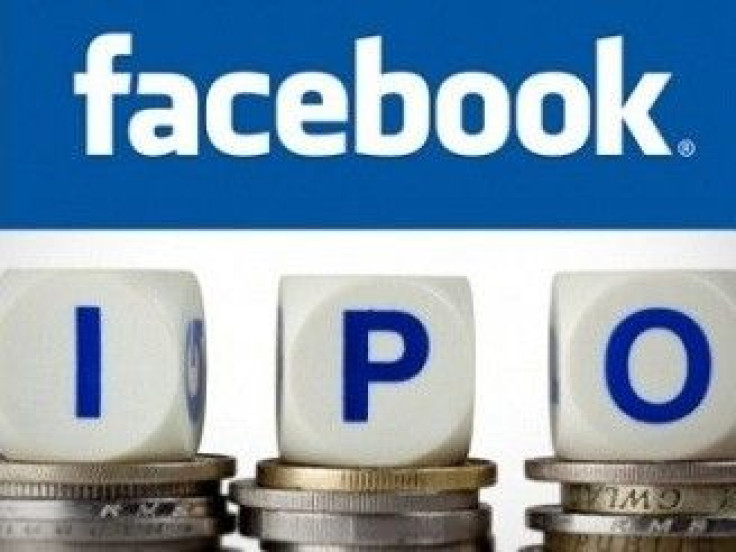Facebook Shares Drop Again On New Probes Despite Morgan Stanley Investor Pledges

Shares of Facebook (Nasdaq: FB), the No. 1 social network, fell 3.4 percent Friday, a week after their disastrous debut in their initial public offering.
Shares fell $1.12 to $31.91 from Thursday's close, valuing the Menlo Park, Calif.-based company around $68.2 billion. It started out valued around $104 billion on May 17. During the week they touched $30.94.
The decline lowered the value of Facebook CEO Mark Zuckerberg's shares to $16.06 billion, compared with $19.03 billion before his marriage last Saturday.
Several more government officials announced probes into the controversial IPO. Rep. Scott Garrett (R-N.J.) and Rep. David Schweikart (R-Ariz.), said they would convene the U.S. House Subcommittee on Capital Markets and Government Sponsored Enterprise to examine how retail investors were treated after Facebook raised $16 billion for itself in the IPO.
The Senate Banking Committee, House Financial Services Committee and the Securities and Exchange Commission have said they're looking at the Facebook deal.
Facebook shares were priced at $38 by underwriters Morgan Stanley (NYSE: MS), JPMorgan Chase (NYSE: JPM) and Goldman Sachs (NYSE: GS), with another 30 other managers.
Insiders such as Zuckerberg, 28, netted $9 billion even before the shares were available to all investors on May 18.
But fallout from the IPO continues:
Morgan Stanley, on a company call, told its brokers it would adjust prices for some Facebook trades that couldn't be executed in the 30-minute period last Friday when shares first traded at $42.05 and then halted for 30 minutes.
The biggest retail broker also said some trades at $43 won't be executed.
Meanwhile, more investors said Morgan Stanley, JPMorgan and Goldman Sachs likely made huge trading profits shorting facebook shares in the IPO, then using shares that hadn't been allotted to make gains.
More class action lawsuits were filed against Facebook as well as the underwriters alleging improper conduct. In New York, Pomerantz Haudek Grossman & Gross, well-known for successful class action lawsuits, sued in U.S. District Courrt in New York. Earlier, San Francisco law firm Hagens Berman Sobol Shapiro, sued the website in U.S. District Court in that city.
Girard Gibbs, another San Francisco law firm, filed still another class-action lawsuit against the company on Thursday alleging false and misleading statements made to the SEC. So did Wolf Haldenstein Adler Freeman & Herz, which brought its lawsuit in U.S. District Court in San Francisco. Earlier ones were filed in New York.
Chief underwriter Morgan Stanley has acknowledged its Internet analyst, Scott Devitt, spoke to some clients about the company during the May roadshow, but didn't say anything irregular.
Under SEC regulations known as Fair Disclosure, any concerns about the company such as earnings and revenue predictions, must be made to all investors.
Oral remarks are acceptable under the Securities Act of 1933, said Jeremiah Garvey, a securities lawyer with Buchanan Ingersoll & Rooney in Pittsburgh. Still, questions remain about which investors were told and which weren't/
None of the 33 major underwriters, though, has published an investment report on Facebook yet. Under the law, they can't publish any stock recommendations for 40 days after the IPO.
On Friday, Rory Maher of Capstone Investments, started Facebook coverage with a hold rating because the company hasn't realized its potential earnings. Other firms not associated with the IPO, Needham & Co. and Sterne Agee have published analyst reports with buy ratings.
Several investment firms acknowledged losses in the disastrous IPO. Chicago's Citadel, which manages a $1 billion hedge fund, has a loss as high as $35 million, Knight Capital Group (NYSE: KCG) said it would take a hit as high as $35 million on second-quarter results also due to Facebook problems.
Still, with a record 421 million shares sold in the IPO, with a quarter sold to individuals, some industry analysts have questioned whether other elements could have contributed to snafus in prices and executing trades..
For example, just before the May 17 IPO, General Motors (NYSE: GM), announced it would pull its $10 million advertising account from Facebook. Then came the glitches in opening trading on Nasdaq, followed by problems executing orders at Morgan Stanley from retail clients.
I don't think this was random, said Gavin McGarry, CEO of Jumpwire Media, a San Francisco brand management advisory company. Who benefits? Who was hurt?
McGarry suggested the Facebook snafus, along with the GM move, could have been tied to Republican Party operatives seeking to embarrass President Barack Obama as the presidential campaign gears up.
Facebook is basically aligned with the Democrats, McGarry noted, citing the president's visit to Facebook. Wall Street, he said, is basically aligned with Republicans, like Mitt Romney, who's raising fortunes there.
Indeed, McGarry said he didn't buy either Nasdaq's or Morgan Stanley's claims about mechanical glitches. Traders on the Chicago Mercantile Exchange move their servers closer to the Merc to get quotes a millisecond earlier, he said. Don't tell me Morgan Stanley had problems.
Facebook didn't just set records for enriching inside investors like Zuckerberg, COO Sheryl Sandberg, Accel Partners and Digital Sky Technologies.
The underwriting syndicate led by Morgan Stanley collected a colossal $176 million in underwriting fees, Facebook SEC filings show.
The biggest slice will be taken by Morgan Stanley, followed by JPMorgan Chase and Goldman Sachs, with the rest spread among the others including Bank of America (NYSE: BAC) Merrill Lynch, Barclay's (London: BARC) and Allen & Co.
Meanwhile, just by stabilizing Facebook shares last Friday when they plunged in opening trades, Morgan Stanley made another $100 million. Morgan Stanley shares closed at $13.25, down 6 cents, on May 25. Its market capitalization is $26.2 bilion, less than half that of its current client.
© Copyright IBTimes 2024. All rights reserved.












